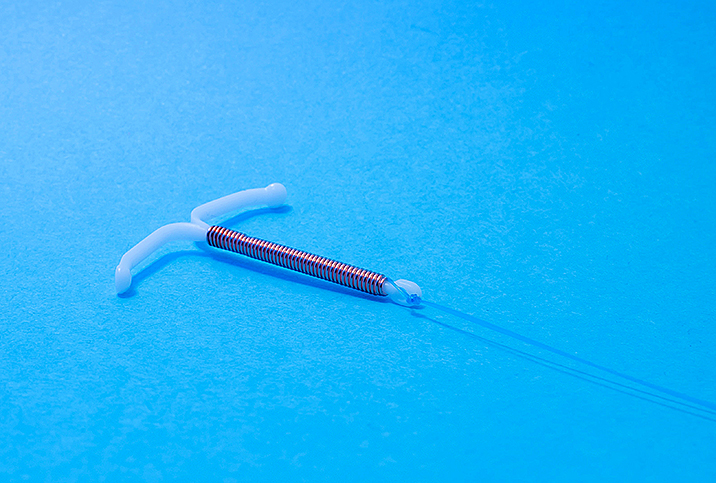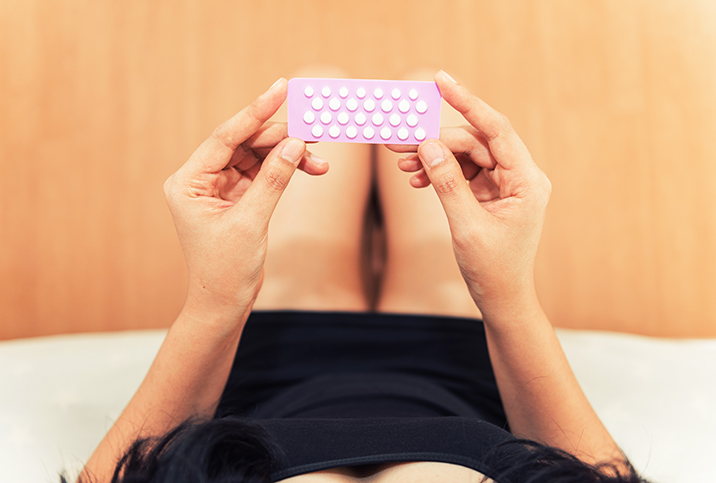Why You Shouldn't Discount the Depo-Provera Shot

The Depo-Provera shot is a bit of an anomaly in the world of contraceptive methods. Unlike intrauterine devices (IUDs) or the Nexplanon arm implant, the Depo shot isn't a piece of semipermanent technology inserted in the body. Unlike the pill, it's not a dose of hormones flushed out by the body in a matter of days. Instead, the shot is a hormonal injection promising protection from pregnancy for three months.
Depo-Provera is injected into either muscle, usually by a doctor or nurse, or subcutaneous tissue in the abdomen or the top of the thigh, which a woman can administer herself, said Kate White, M.D., M.P.H., an OB-GYN and author in Boston. The progestin is slowly released from that tissue over a three-month period.
Also unique to the Depo shot is that unlike other forms of birth control that stop working as soon as they're removed or require daily administration to remain effective, menstruation can take up to two years to return after injection.
How exactly does the shot work?
"Depo-Provera tricks your system into thinking you are pregnant, thus preventing the release of an egg for ovulation," explained Betsy Greenleaf, D.O., an urogynecologist at Greenleaf Health and Wellness in Howell, New Jersey. "Depo-Provera also thickens the cervical mucus, decreasing the ability of sperm to enter the uterus through the cervix."
"Because Depo users are in a relatively low-estrogen state, the lining of the uterus [endometrium] becomes incredibly thin [atrophic]," White added.
This especially thin uterine lining may be ideal for women suffering from endometriosis, as there are far fewer cells to overgrow the uterus. In fact, Depo is sometimes used in the treatment of endometriosis.
But how does the shot actually work during the three months of sure-fire coverage from insemination? Where does the body stash the medication and how does it ration the hormones to last the three months?
"Metabolism, in the way that most people think about it, doesn't have anything to do with how Depo works in the body," White explained. "Depo is metabolized by the liver, and while there's normal variation from person to person in how fast medications are metabolized, it's all within a range of effectiveness for a given drug."
Side effects and contraindications of the shot
The Depo-Provera shot isn't without side effects.
"Due to the hormonal effects on the body, some women may experience vaginal dryness and thinness of the vaginal tissue," Greenleaf said. "The thinning and dryness can lead to pain with the friction of intercourse and shifts in the bacterial balance of the vagina, increasing the risk of infections and altered sex drive."
Other side effects of the birth control shot can include irregular menstruation, headaches, changes in appetite and weight, hair loss, acne, facial hair growth and osteoporosis, according to Cleveland Clinic.
A contraindication is possible between the Depo shot and people with diabetes. A contraindication refers to a specific situation in which an otherwise beneficial medicine or procedure harms an individual, despite benefiting the majority of people. In certain situations, the liver may already be overtaxed in a person managing diabetes, so the addition of the Depo shot could be harmful.
"The liver has multiple pathways by which it metabolizes medications, foods and toxins. Depo-Provera utilizes the CYP3A4 pathway," Greenleaf said. "If a person is taking medications that compete for the same pathway, this can affect the efficacy of that medication or even the shot. Basically, two cars can't be in the same place at the same time on the same road. One will get bumped off."
Greenleaf also warned that heavy or continuous alcohol use can negatively impact the Depo-Provera shot's effectiveness.
CYP3A4 is much less obscure than it sounds; the enzyme is cited as the major metabolizer for half of all medications. CYP3A4 is also an enzyme inhibited by some types of fruit juice, such as grapefruit juice. In a terrific example of contraindication, the otherwise healthy grapefruit juice contains essential nutrients such as vitamin C and potassium yet reduces the absorption of certain medications relying on the CYP3A4 receptor enzyme. Since the CYP3A4 receptor enzyme is busy with grapefruit juice, too much undigested medication enters the bloodstream.
This is only an example; different individuals require different amounts of chemicals for the same medication to be impacted.
Weighing the pros and cons
The Depo-Provera shot operates like many contraceptives by preventing ovulation with the presence of synthetic pregnancy hormones. Unlike other contraceptive methods, the Depo shot is stored in fatty tissue, yet is distributed and spent via the liver. The shot also can't be removed the way an IUD or Nexplanon can, and unlike the pill, it can't be flushed out in a relatively short period.
A contraindication to some people and life-changing help to others, the Depo-Provera shot requires consultation with a healthcare provider before pursuing it or eliminating it from your many contraceptive options.


















